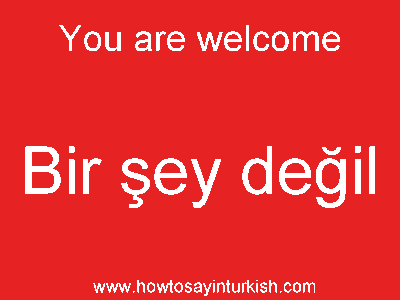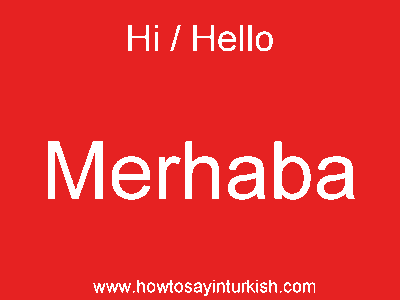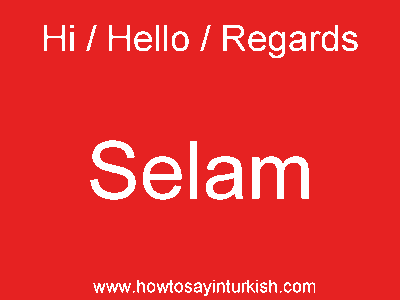Simple Phrases
Simply being able to say thank you or please is always helpful.
Before you can thank anyone for a favor, it helps to say please to get them to do it in the first place. To that end, use a liberal number of ![[ Please in Turkish is lütfen ]](please-in-turkish.png) lütfens along with your request.
lütfens along with your request.
The formal phrase for thank you tends to create difficulties for a lot of non-native speakers. The phrase is ![[ Thank you in Turkish is teşekkür ederim ]](thank-you-in-turkish.png) teşekkür ederim. It is a mouthful, isn't it?
teşekkür ederim. It is a mouthful, isn't it?
One solution that is acceptable in most social situations is to use a word that was invented to deal with the problem of dubbing the simple thanks
in American movies. ![[ Thanks in Turkish is sağol ]](thanks-in-turkish.png) Sağol can be a life saver.
Sağol can be a life saver.
Note that the ğ (i.e. soft-g) in the middle with the accent is not pronounced at all, but is used to extend the a.
When thanked, the usual response is to say  bir şey değil, which, literally translated, means
bir şey değil, which, literally translated, means it is nothing
. On the other hand, do not take it literally. While it is customary to downplay the importance of the help given, the appropriate response is to build it up. You would be surprised how far a little praise can go in Turkey.
- Please
![[ Please in Turkish is lütfen]](please-in-turkish.png) Lütfen
Lütfen- Thank you
![[ Thank you in Turkish is teşekkür ederim]](thank-you-in-turkish.png) Teşekkür ederim
Teşekkür ederim- Thanks
![[ Thanks in Turkish is sağol ]](thanks-in-turkish.png) Sağol
Sağol- Don't mention it / You are welcome
![[ Don't mention it in Turkish is bir şey değil ]](dont-mention-it-in-turkish.png) Bir şey değil
Bir şey değil- Hi / Hello
 Merhaba is a general purpose hello.
Merhaba is a general purpose hello.
While selamün aleyküm
is usually only used by observant Muslim Turks, its shorthand version  selam is used widely as a greeting.
selam is used widely as a greeting.